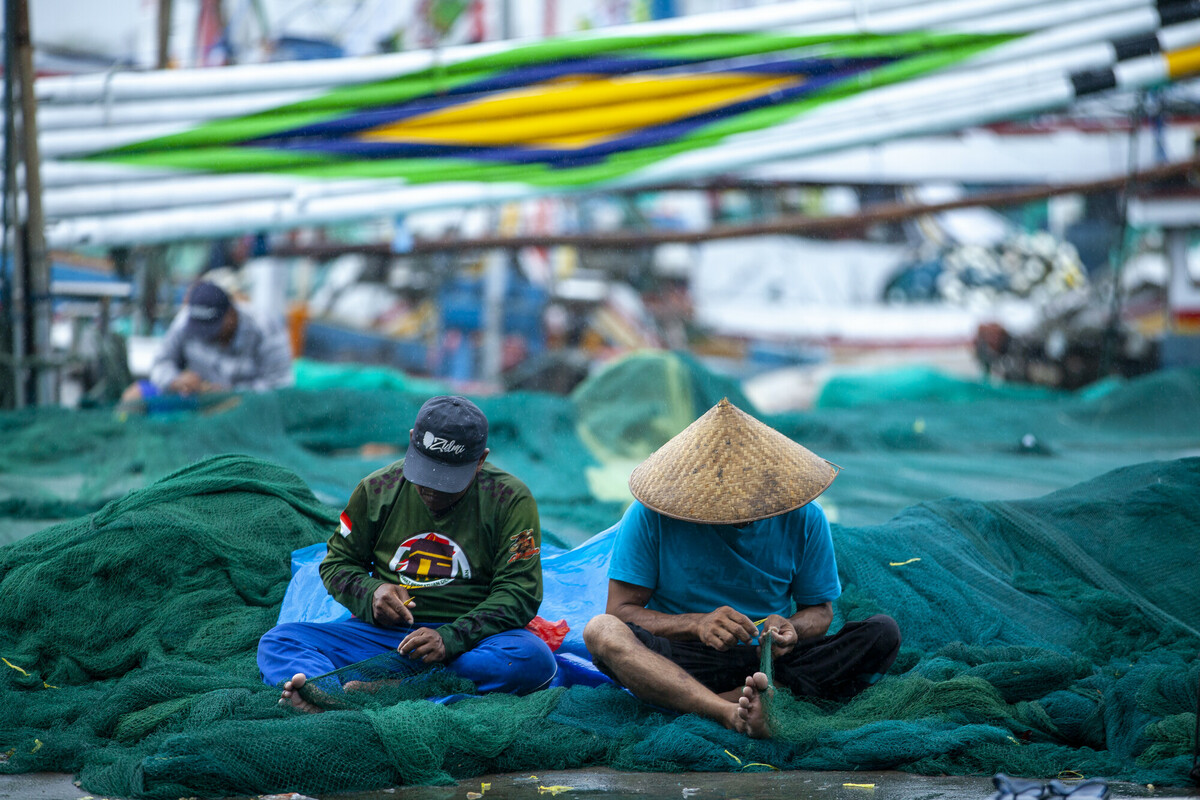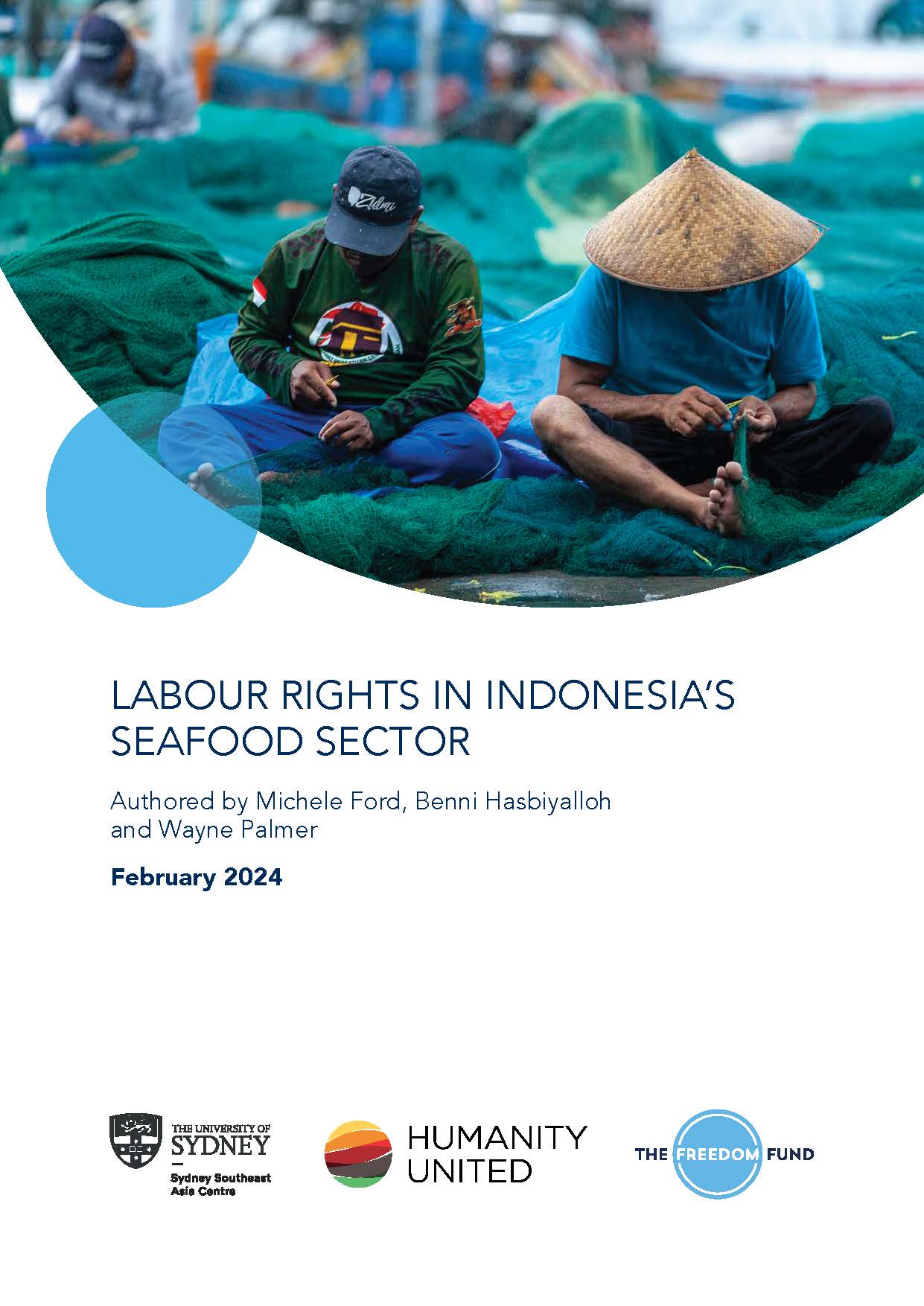The Indonesian seafood sector is a dynamic, yet challenging, space where the rights of workers, such as Indonesian nationals employed to work on fishing boats and in seafood processing plants, have often been overlooked. While international attention has centred on migrant fishers, the plight of Indonesians has received scant consideration. However, amidst these challenges, a concerted effort led by a group of unions and non-governmental organisations (NGOs) supported by the Freedom Fund and Humanity United seeks to address these issues head-on.
The Freedom Fund commissioned a study with the Sydney Southeast Asia Centre (SSEAC) at the University of Sydney in late 2022 aimed at providing insights and recommendations to bolster the efforts of partners working in Indonesia’s seafood sector. The study outlines labour organising models in Indonesia, focusing on informal and/or migrant workers, and identifies promising approaches for worker mobilisation adaptable to the seafood sector. It also examines the existing scope of work of the partners to explore new approaches for mobilisation and recommends collaborative approaches to strengthen programmatic impacts. In the next phase of the research, the findings will guide partners and facilitate ongoing adaptations and knowledge sharing in specific interventions and in the wider labour rights movement.
Employing qualitative research methodology, the study involved extensive desk reviews, key informant interviews, and on-site visits to engage with partners. Notably, the research underscores the pivotal role of grassroots organising as a long-term strategy for advancing labour rights in the seafood sector. While market-based approaches have traditionally dominated the discourse, the report advocates for sustained efforts in organising, recognizing its potential for enduring change.
Key findings reveal that despite the inherent challenges in the seafood industry’s structure and labour dynamics, organising efforts have yielded tangible results in other countries like Thailand. The report emphasises the need for collaborative endeavours between workers’ organisations and NGOs, leveraging their respective strengths to foster meaningful change.
Moreover, the study underscores the importance of servicing initiatives, particularly in facilitating access to healthcare and advocating for migrant workers’ rights. It also highlights the critical role of international pressure and support in driving improvements while cautioning against unintended repercussions on employers. In light of these findings, the report offers a series of recommendations aimed at strengthening the impact of partners and fostering positive transformations within the seafood industry. These include a focus on leveraging organisational strengths, fostering strategic alliances, and enhancing joint evidence-building efforts.
Moving forward, the collaboration between the Freedom Fund, Humanity United, and local stakeholders hold immense potential for effecting systemic change within Indonesia’s seafood sector. By embracing a multifaceted approach that combines organising, advocacy, and servicing, stakeholders can pave the way for a more equitable and just working environment for all seafood sector workers in Indonesia.
Click below to access the report!
Photo credit: Armin Hari/The Freedom Fund




